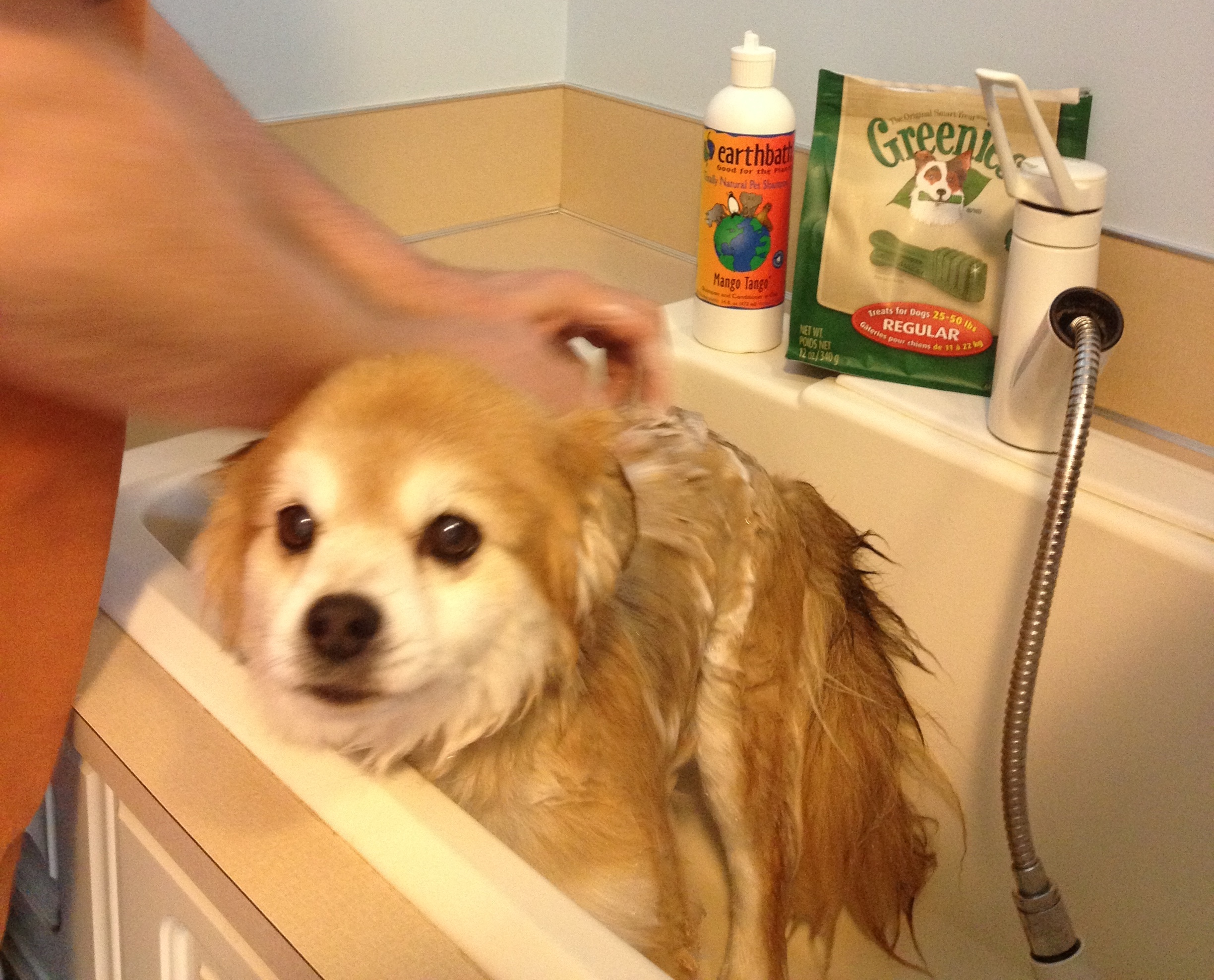What’s the deal with medicated shampoos for dogs? That’s what a reader wanted to know – here’s what I told her!
Q: My dog has a skin problem, and the veterinarian recommends using a medicated shampoo. What can you tell me about how these products work?
A: Medicated shampoos are topical therapies, meaning they are applied to the body. They may be used to remove scaling or crusting; fight parasites, bacteria or fungi; or relieve itchiness.
Depending on your dog’s skin problem, a medicated shampoo may have one or more agents, the active ingredients that do the work. Antibacterial agents include benzoyl peroxide, chlorhexidine, triclosan and salicylic acid. They each work in different ways, usually by attacking bacterial cells, destroying plasma membranes or lowering the skin’s pH, for instance.
Antifungal shampoos work against dermatophytes — fungi that can infect skin, hair and nails by colonizing keratin tissues — and Malassezia, a type of yeast that can overpopulate the skin. Common antifungal ingredients include miconazole and chlorhexidine, both of which can also have antibacterial properties. It’s important to have a definitive diagnosis for a fungal infection, because not every agent works against both dermatophytes and yeasts.
Anti-itch shampoos are usually used in combination with other medications to help soothe the itch. They may work by moisturizing dry skin or providing a cooling or tingling sensation. A common type you may have seen is colloidal oatmeal. Its properties include a high concentration of starches, different types of phenols and saponins, all of which work together to give colloidal oatmeal its cleansing, moisturizing, soothing and anti-inflammatory effects.
Dogs with scaly, crusty or greasy skin problems usually need a shampoo that contains antiseborrheic agents such as sulfur, salicylic acid or benzoyl peroxide. Their job is to normalize the skin.
Be sure to ask your veterinarian about possible side effects. Depending on the type of shampoo, these may include dry or irritated skin. Some products may bleach fabric or hair.
Read more, including how to cope with a compulsive cat, in this week’s Pet Connection!


